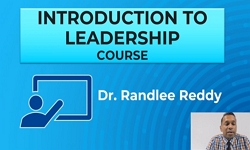본 연구는 군 조직에서 리더십에 관한 일반적인 이론 중에서 변혁적 리더십의 중요성과 지식정보화 시대를 맞이한 오늘날 변혁적 리더십 훈련을 통해 군 지휘관의 리더십 향상방안에 대해 ...
http://chineseinput.net/에서 pinyin(병음)방식으로 중국어를 변환할 수 있습니다.
변환된 중국어를 복사하여 사용하시면 됩니다.
- 中文 을 입력하시려면 zhongwen을 입력하시고 space를누르시면됩니다.
- 北京 을 입력하시려면 beijing을 입력하시고 space를 누르시면 됩니다.
https://www.riss.kr/link?id=T11471493
- 저자
-
발행사항
원주 : 상지대학교 경영․산업대학원, 2008
-
학위논문사항
학위논문(석사) -- 상지대학교 경영․산업대학원 , 경영정보학과 경영정보 전공 , 2008. 8
-
발행연도
2008
-
작성언어
한국어
- 주제어
-
발행국(도시)
강원특별자치도
-
형태사항
72 p. ; 26cm
-
일반주기명
지도교수:오영진
- 소장기관
-
0
상세조회 -
0
다운로드
부가정보
국문 초록 (Abstract)
본 연구는 군 조직에서 리더십에 관한 일반적인 이론 중에서 변혁적 리더십의 중요성과 지식정보화 시대를 맞이한 오늘날 변혁적 리더십 훈련을 통해 군 지휘관의 리더십 향상방안에 대해 연구해 보았다.
이러한 연구목적을 달성하기 위해 국내외에서 발표된 학술논문과 문헌들을 검토하였으며, 배스가 주장한 변혁적 리더십의 개념과 그 구성요인에 대한 선행연구 결과와 검토 및 구체적인 리더십 실천 훈련방법에 대해 제시해 보았고, 필자의 경험과 생각으로 현재 군 환경에 적합한 리더십 향상방안에 대해 논해 보았다.
본 연구의 결과를 요약하면 다음과 같다.
첫째, 현재까지 진행되어온 리더십에 대한 연구를 개괄적·종합적으로 고찰한 뒤에 한 집단 내에서 두 사람 이상이 상호작용하는 과정에서 나타나 것이 리더십이고 부하들이 열성적으로 목표달성에 참여할 수 있도록 의도적 영향력을 행사하려고 하는 자가 리더라 정의하였다. 지식정보화 시대에 적합한 리더십은 변혁적 리더십으로 조직의 리더도 시대적·환경적 변화의 흐름에 적응하고 조직이 생존하기 위해서 변혁적 리더로 학습되어질 필요가 있다고 주장하였다.
둘째, 리더십을 향상시키기 위한 리더의 기본적인 마인드 또는 지휘통솔 원칙으로 “애정을 기반으로 한 지도”를 구체적이며 현실적인 리더십 훈련방법 즉, 리더의 훈련 프로그램과 효과적인 훈련실체에 대해, 스티븐 코비 박사가 제시한 성공하는 리더의 7가지 습관을 내면화·체득화 하여 리더십을 향상시키는 변혁적 리더십의 훈련방법을 제시하였다.
셋째, 지식정보화시대에 군 리더십의 향상방안으로 지휘관이 갖추어야 할 리더상은 군 환경변화에 적절히 대응하고, 부하의 능력을 최대한 발휘할 수 있게 여건을 조성해 주며 조직행동에 능동적으로 참여할 수 있도록 동기부여와 부하에 대해 인정과 칭찬의 지휘통솔 방법 등 21세기 지식정보화 시대의 변혁적 리더상을 제시하였다.
군 지휘관의 리더십 향상방안으로는 우리나라 기업의 최고 경영자나 군 지휘관들은 아직도 전통적 리더십 한계를 벗어나지 못하고 있는 것은 우리의 조직이 아직도 전통적이고 사회의 급격한 변화속에서 형성된 과거의 모든 여건 때문으로 판단된다.
앞으로 한국군 리더십의 발전방향은 권력의 사용에 있어서 지휘관의 가능적 자질과 부하를 이끌 수 있는 인간적 자질을 동시에 갖춘 창조적인 변혁적 리더십이다.
지식정보화시대 발전 원동력인 지식과 정보의 적극적인 활용과 국가·사회전반의 인간 존엄성과 권리에 대한 자각이라는 새로운 환경변화를 수용하기 위해서 변화와 혁신을 해야만 한다.
변화와 혁신을 하기 위해서 기존의 제도, 문화, 시스템의 개선과 동시에 시대적 요구에 맞는 인간중심 리더십의 계발과 정착이 중요하다. 군의 지휘 환경도 조직 중심사고에서 인간중심사고로, 권한의 집중과 통제에서 분권과 자율로, 인력과 장비의존 전쟁양상에서 지식정보화전으로 변함에 따라 지휘유형 역시 이에 적합한 변화가 반드시 필요하다. 이를 위해서 군 지휘관들은 적극성과 창의력을 고양시켜 조직목표 달성에 스스로 참여하도록 하고 집단사기를 앙양시켜 긍정적인 동기부여 효과를 유발시켜야 한다. 또한 일반적으로 보상을 주는 것이 무관심하거나 처벌보다 동기효과가 크며 공개적 보상〈 개인적 처벌〈 개인적 보상 순으로 동기효과가 존재하고 공개적 보상을 열등한 부하에게 개인적 처벌은 우수한 부하에게 보다 효과가 있다.
따라서 부대 특성과 부하의 수준, 지휘관의 특성에 부합되도록 신상필벌이 균형 잡힌 지휘방법을 적용하되 어떤 부하에게도 동등한 신상필벌을 적용하여 그들 스스로 공정성을 느끼도록 해야 한다.
지휘관들의 리더십 제고를 위한 지속적인 훈련과 부하들을 효과적으로 지휘통솔 하기보다는 계급에 의한 강압적인 복종으로 강요하지 않는 등 상급 지휘관의 관심과 배려, 부하들의 욕구해소를 통한 리더십 향상방안으로 기본권 신장에 관심을 제고하고 부하들을 상호존중과 배려로 대해주며 효과적인 의사소통을 할 수 있는 여건을 제공 하는 등 지휘관의 자세가 필요하다.
부하들에 대한 관심과 태도 개선방안으로는 상관과 상급자는 부하와 하급자를 대할 때 동등한 인격 소유자임을 감안하여 인격적으로 대해주는 등 부하에 대한 상관의 관심을 증대시키고, 무조건적인 복종을 지양하고 인정과 칭찬을 아끼지 말아야 한다.
이상과 같이 군 지휘관의 리더십 향상방안에 대하여 제시하였으나, 다음과 같은 한계점이 있다. 먼저 본 연구의 방법으로 문헌연구만을 사용하였다.
리더십 분야에서 경영학 관련분야의 문헌연구를 통해서 조직의 리더가 변혁적 리더십을 함양할 수 있는 실천적 방안을 제시하고, 이를 통하여 조직의 긍정적 변화에 기여하고자 한 것이 논문의 취지였던 것이다.
또한 급변하는 사회추세에 비추어 한국인의 의식구조와 군 조직의 특성을 충분히 고려하여 우리 군 특성에 맞는 독자적인 리더십 모형개발과 리더십이 발휘되는 향상들을 측정하고 평가하는 방법의 개발 등은 계속적인 과제로 남는다.
획일적이고
다국어 초록 (Multilingual Abstract)
This research presents the importance of revolutionary leadership, and mean to improve military commander's leadership through a revolutionary training as we face knowledge and information oriented era among many general theories on leadership in mili...
This research presents the importance of revolutionary leadership, and mean to improve military commander's leadership through a revolutionary training as we face knowledge and information oriented era among many general theories on leadership in military.
In order to achieve the objective of this research, a review has been conducted on various theses and publications as well as studies on Bath's concept of revolutionary leadership and the factors in her argument. Moreover, training on practicing leadership and appropriate means to enhance military leadership based on my experience and thoughts are shown in detail. The summary is as follows.
First, based on a general and comprehensive review on researches conducted up to date on leadership, one may argue that leadership occurs in an interaction of more than two people in a group and the leader in a group is the one that attempts to affect others intentionally to encourage them to participate in achieving the group objective with passion. Suitable leadership for the knowledge and information oriented era is the revolutionary leadership with which a leader is highly adaptive to changes of environment and era and revolutionary for the survival of his organization.
Second, assuming that leadership is a complex ability that can be gained through a systematic education, training means based on leader's mind-set and fundamental command and control principle that a leader has to have in order to improve his leadership. Also, revolutionary leadership training scheme that enhances leadership through internalization of Dr. Steven's leader's seven habit is presented in this thesis.
Third, a commander should know how to react to military environmental change set conditions so that subordinates can demonstrate their capability to the maximum degree motivate them to voluntarily take a part and complement them in order to exhibit leadership that fits in 21st century knowledge and information oriented era.
One of the factors that impedes improvement of military commander's leadership in other words, the reason why CEOs of big corporations and military commanders are still unable to overcome the limitation of the traditional leadership is because, organizations have been unable to transform fast enough to keep up with changes brought by time and still have old-fashioned customs and traditions. Therefore, the republic of Korea army must have pursue creative and revolutionary leadership with functional quality in exercising authority and humane quality that can lead subordinates. It must seek to transform and reform to keep up with an environmental change; recognition of human dignity and rights and active utilization of knowledge and information which, is the driving force for the development of knowledge and information oriented era. Critical part of the transformation is reforming system and culture and changing leadership into human centered leadership.
As military is going through a transformation by changing from organization centered thinking to human centered thinking, centralization of power and central-control to decentralization of power and self-control, and human resource and equipment based war to knowledge and information based war way of command should change in the following ways.
First, commanders should improve soldiers' activeness and creativity for their participation and motivate them by enhancing morale as a whole group. In most cases compensations bring greater motivation compare to punishment or inattention.
The factors that bring motivation to subordinates are compensation in public, punishment in private and compensation in private in the respective order. Moreover, it is argued that compensation in public is more effective to inferior subordinates and punishment in private has greater effect to superior subordinates. Therefore, a commander should compensate and punish subordinates in a way that is tailored to his unit, level of his subordinates and his character while having a standard so that everyone feels it is fair.
Second, next higher commander's attention and thoughtfulness is essential to review a commander's leadership and see whether a commander is forcing subordinates by rank to obey him rather than by controling soldiers in a effective way.
Third, a commander can improve his leadership by satisfying subordinates' need. A commander needs to strive to ensure subordinates' right and shape conditions for them to mutually respect and effectively and freely exchange opinions through various channels such as a discussion session by rank and private letter writing to commander. These will assist a commander to overcome impediments to communication between him and subordinates such as difficulties that come from rank differences and time limitation and one way communication.
Fourth, a commander can also enhance his leadership by improving attitude and paying more attention towards subordinates. A commander should mind that subordinates are also human beings and no different from him. He should not force them for blind loyalty and treat them with love and complements.
Even with the means mentioned above for improving military commander's leadership there still remains following limitations. First, the only reference used in this thesis is publications and theses. Despite the variety of practical ways to develop and improve leadership presented in this thesis to contribute to positive transformation of organization yet, there are issues left such as a need to develop of military organization and Korean ways of thinking in this fast changing rea, and a ways to measures and examine leadership.
A leadership that is unpractical, uniform regardless of given situation and factors, and only based on personal experience will be inappropriate for the future.
Therefore, a military leader must understand how behavior and attitude of recruits change as generation changes and a situation that his organization is in. In addition
목차 (Table of Contents)
- 제1장 서론 = 4
- 제1절 연구목적 = 4
- 제2절 연구범위 및 연구방법 = 6
- 제2장 변혁적 리더십의 이론적 고찰 = 7
- 제1절 리더십에 대한 일반이론 = 7
- 제1장 서론 = 4
- 제1절 연구목적 = 4
- 제2절 연구범위 및 연구방법 = 6
- 제2장 변혁적 리더십의 이론적 고찰 = 7
- 제1절 리더십에 대한 일반이론 = 7
- 제2절 변혁적 리더십의 특성과 구성요소 = 10
- 1. 거래적 리더십과 변혁적 리더십의 개념적 특성 = 10
- 2. 변혁적 리더십의 구성요소 분석 = 14
- 3. 변혁적 리더십의 등장과 변혁적 리더 = 18
- 제3장 리더십 훈련 프로그램과 효과적인 훈련설계 분석 = 23
- 제1절 변혁적 리더십의 필요성과 훈련 가능성 = 23
- 1. 변혁적 리더십의 필요성 = 23
- 2. 변혁적 리더십의 훈련 가능성 = 23
- 제2절 리더십 향상을 위한 원칙 = 24
- 제3절 구체적인 리더십의 훈련방법 = 27
- 1. 리더십 훈련 프로그램 = 27
- 2. 효과적인 훈련 설계 = 29
- 제4절 7가지 습관의 변화를 통한 리더십의 훈련방법 = 32
- 제4장 군 리더십 훈련 프로그램의 실태와 문제점 = 38
- 제1절 군 리더십 훈련 프로그램 실태 = 38
- 제2절 군 리더십 훈련 프로그램 문제점 = 39
- 제5장 군 리더십의 향상방안 = 41
- 제1절 군 조직의 특성과 리더십 = 41
- 제2절 군 리더십 향상방안 = 54
- 제6장 결론 = 62
- 제1절 연구결과 요약 = 62
- 제2절 연구의 시사점 및 한계 = 63
- <참고문헌> = 66
= 69












